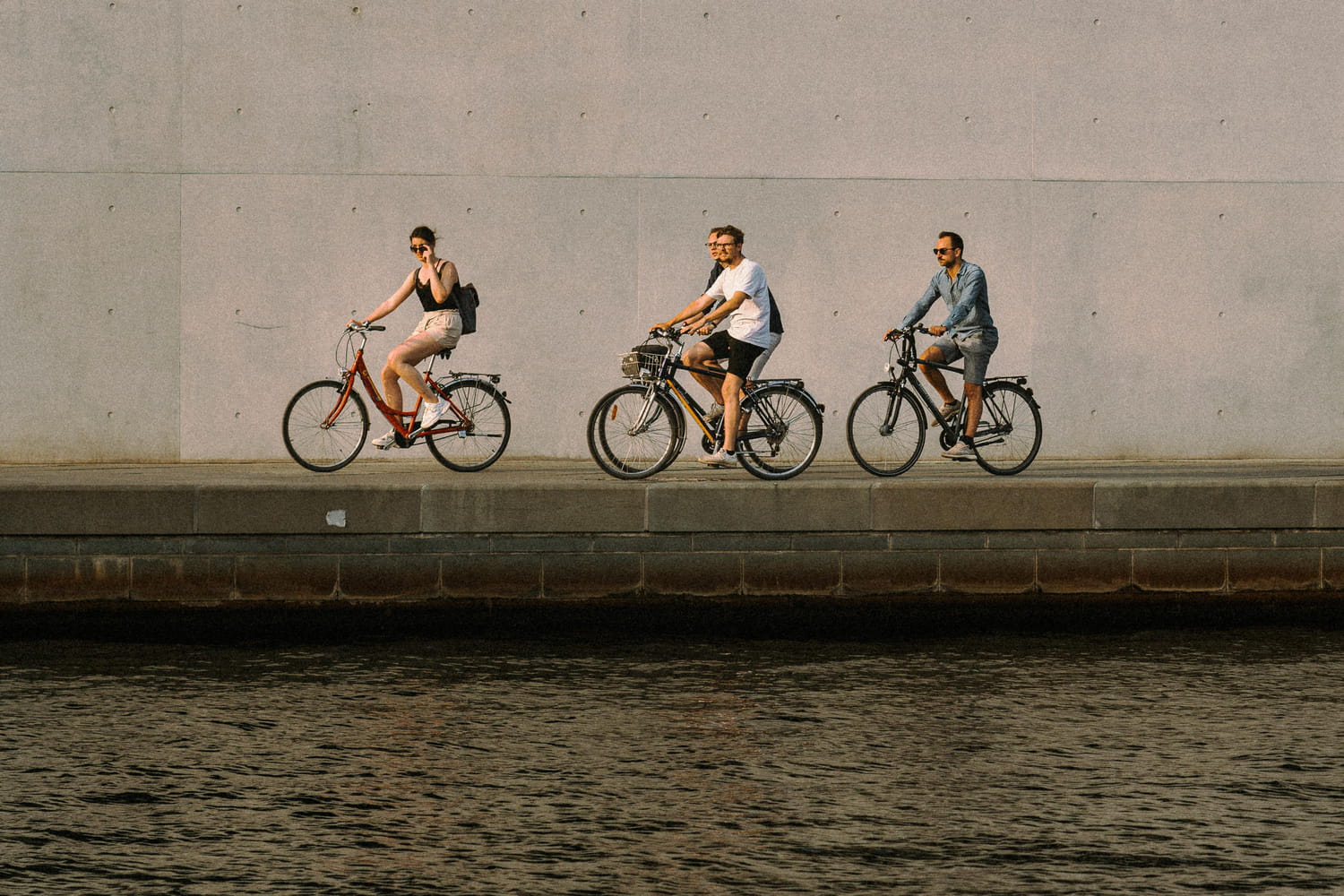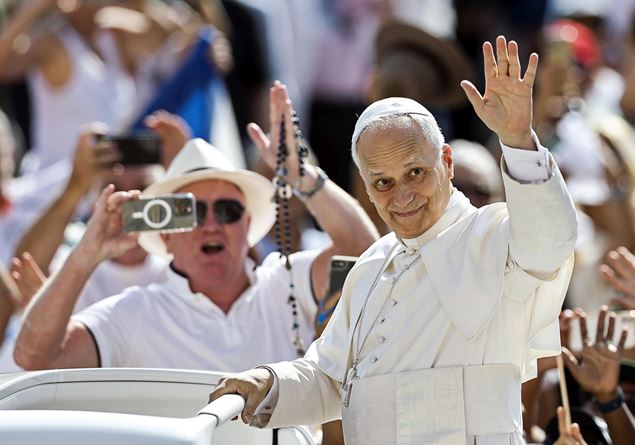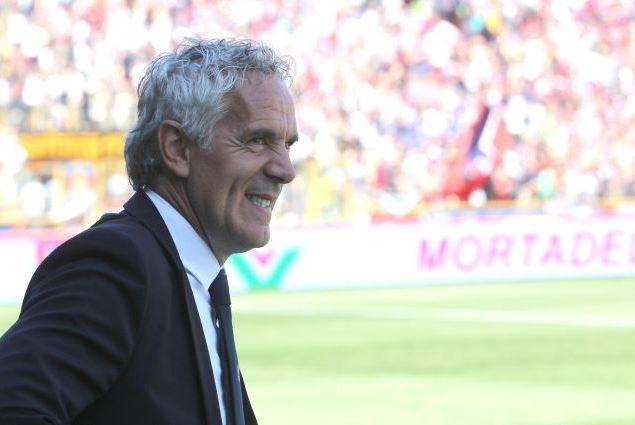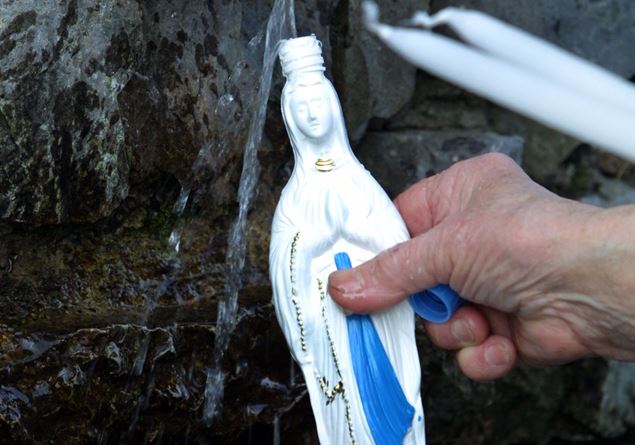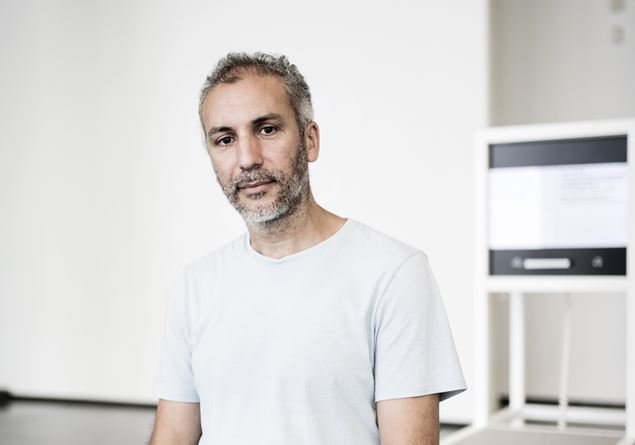It is August 6, 80th anniversary of the atomic bombing on the Japanese city of Hiroshima e Pope Leo XIV, At the general hearing in St. Peter’s Square crowded with faithful, he addresses a heartfelt appeal to the international community, recalls and prays for “all those who have suffered the effects. Despite the passing of the years, Those tragic events constitute a universal warning against the devastation caused by wars and in particular by nuclear weapons“, He underlines with the hope” that in the contemporary world marked by strong and bloody conflicts, the illusory security based on the threat of mutual edition gives way to the tools of justice, dialogue, the trust of fraternity “.
The Pope arrived in the square warmly welcomed by the faithful so much that he agreed to take a second lap on board the Papamobile to greet everyone and still bless children, girls, greet and give blessings while he was continually made the object of launches of rosaries, flags, sports shirts, dolls.
In the catechesis, the first of the new jubilee cycle of catechesis dedicated to “Jesus Christ our hope”, and dedicated to the mystery of the passion, death and resurrection, Remember that “God always precedes us” with his love, a “true love”, which “is given before he is reciprocated”, but leaving us free to respond to his gift.
The Pope focuses on the preparation of the last dinner inviting to meditate on the verb “prepare”, which “holds a precious secret of Christian life”, and recalls that, on the “first day of the reset, when Easter was immolated”, The disciples ask Jesus where to organize it. The teacher gives precise indications – “Go to the city and a man will come to meet you with a water jug” – and the disciples find everything as he had been told and a ready -made room. “It is as if everything had been predisposed in advance,” the Pope points out, explaining that this evangelical episode. It reveals that “love is not the result of the case, but of a conscious choice. This is not a simple reaction, but a decision that requires preparation. Jesus does not face his passion for fatality, but out of loyalty to a path welcomed and traveled with freedom and care. This is what consoles us: to know that the gift of his life comes from a deep intention, not from a sudden impulse ».
The room set up for dinner is the symbol that even before we realize we need welcome, the Lord has already prepared a space for us where to recognize and feel his friends. This is the “Our heart: a ‘room’ that may seem empty, but that only awaits to be recognized, filled and kept. Easter, which the disciples must prepare, is actually ready in the heart of Jesus», Remember the Pope,” it is he who thought everything, willing everything, decided everything. However, he asks his friends to do their part. This teaches us something essential for our spiritual life: Grace does not eliminate our freedom, but awakens it. The gift of God does not cancel our responsibility, but makes it fruitful.
Leo XIV invites not to confuse preparations with illusions, because the former orient and make a meeting possible and the latter distract and seek a result: «True love – the Gospel reminds us – is given before it is still reciprocated. It is an early gift », recalls the Pope,” is not based on what he receives, but on what he wants to offer. This is what Jesus lived with his: while they still did not understand, while one was about to betray him and another to deny him, he prepared a communion dinner for everyone ». The invitation of Jesus to prepare the dinner also reaches us today, touches our life, does not only concern the “liturgy”, adds the Pope, but also “our willingness to enter a gesture that exceeds us”, as can be “every free act, every forgiveness offered in advance, every effort welcomed patiently”, all ways “to prepare a place where God can live”.
The Eucharist, underlines Leone XIV, “It is not only celebrated on the altar, but also in everyday life, where it is possible to live everything as an offer and performance of graces. Preparing to celebrate this thanksgiving does not mean doing more, but leaving space. It means removing what clutters, lowering the claims, stopping cultivating unreal expectations ». Then when he welcomes “the invitation to prepare the place of communion with God and between us”, concluded Leone, “Let’s find out we are surrounded by signs, meetings, words that orient” Towards that space, that place, “in which the mystery of an infinite love is celebrated incessantly, which supports us and who always precedes us”.
The hope of the Pope is that the “daily availability” in each can grow “that serene trust” with which to “face everything with the free heart”.



